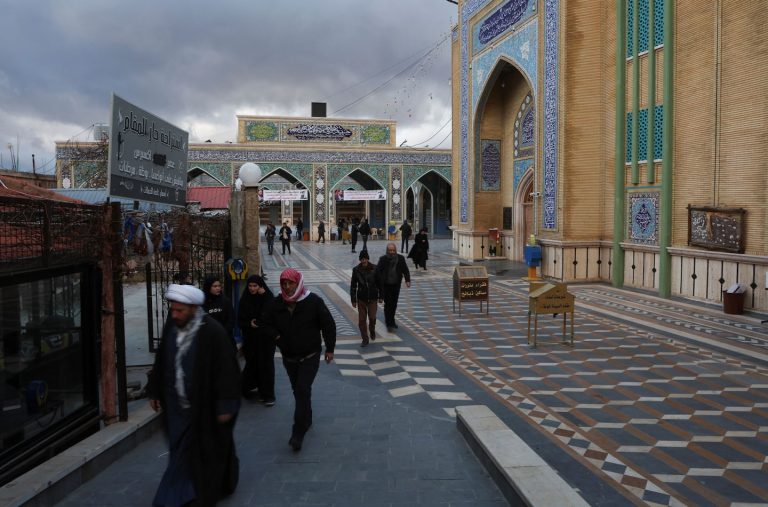The border area between the two historical rivals has witnessed an almost daily exchange of bombing since October 7, when Hamas militants stormed Israel, killing 1,200 people and kidnapping about 240 others. The attack sparked a swift and brutal response from Israel, whose intense bombardment of the Gaza Strip killed more than 20,000 Palestinians in less than three months, according to the Gaza Ministry of Health.
Hezbollah was one of several armed groups allied with Iran in the region offering its support to Hamas and launching attacks on border towns in northern Israel. More than 120 Hezbollah fighters and dozens of Israeli soldiers were killed in the skirmishes. Tens of thousands of civilians were displaced from both sides.
The violence has raised alarm bells in Washington, where officials have expressed concern that a miscalculation could open a dangerous new front — one that would embroil Israel in a different kind of war, against a fighting force more skilled and professional than Hamas.
To address rising tensions, President Biden's senior energy adviser, Amos Hochstein, was sent to Lebanon in November and to Israel this week. In the months leading up to October 7, Hockstein had been exploring the possibility of resolving the decades-old border dispute between the two countries.
An agreement was not as far-fetched as it seemed for the US envoy, who in 2022 brokered an agreement between Israel and Lebanon to demarcate their maritime borders, bringing an end to 11 years of icy negotiations.
Hochstein sought to revive border talks during his visit to Lebanon, according to a report published by the pro-Hezbollah newspaper Al-Akhbar last week. Officials in Lebanon confirmed to The Washington Post that Hochstein had raised the issue.
Nasrallah, always a vague and indirect speaker, did not mention the border demarcation by name on Friday, but analysts said his meaning was clear.
He said in his live television speech: “We are now facing a historic opportunity to completely liberate every inch of our Lebanese land,” adding that Lebanon now has a “real opportunity” to establish an equation that thwarts any Israeli violation of its sovereignty. Lebanon's atmosphere and seas. In a complaint submitted to the UN Security Council on Friday, Lebanon accused Israel of using its airspace to launch attacks in Syria.
Nasrallah continued: “But of course any talks at this level, any negotiations, any discussion, will not take place or reach a result except after the cessation of hostilities in Gaza.”
Muhannad Haj Ali of the Carnegie Middle East Center said that the leader was indicating, in a moment of extreme tension, that Hezbollah was ready to withdraw from the brink and, ultimately, negotiate a border agreement with Israel.
Haj Ali said the process could take years — and would require real concessions from Hezbollah in exchange for Israeli withdrawals from disputed areas — but Nasrallah “was trying to show some kind of good faith regarding his willingness to engage in a long-term process.” practical.”
Nasrallah was quick to clarify that Hezbollah, which calls itself the “resistance” to Israel, is in no way making peace with its historical enemy. He referred to the fighting that has been ongoing for more than 90 days in southern Lebanon and praised the soldiers killed in the conflict.
He also repeated a promise from his speech on Wednesday, pledging to respond to Tuesday's suspected Israeli raid on a building in Dahiya, a neighborhood on the outskirts of Beirut, which killed senior Hamas leader Saleh al-Arouri along with six other Palestinian gunmen.
While Nasrallah tends to be vague about how and when Hezbollah will respond to Israel — a favorite phrase is “in the right place and the right time” — he said on Friday that the response to Al-Arouri’s killing has already begun.
He told his supporters: “We cannot remain silent about a serious threat, because that means that all of Lebanon will be exposed.”
However, under the threat, analysts detected a shift in messaging.
Amal Saad, a lecturer at Cardiff University who closely follows Hezbollah, said the group is sending a signal to Israel that it is “ready to move forward” toward a final border settlement if a ceasefire is held in Gaza.
Saad said: “It is a message to Israel and perhaps the United States, because it is the one that mediates these talks and can pressure Israel for a ceasefire.” Saad said that waving the possibility of demarcating borders was also a message of hope directed to the besieged Lebanese people, who fear war and are drowning in an economic crisis that has been going on for years.
Nasrallah referred to those difficult situations in his speech on Wednesday, saying that the group has so far avoided war because it “takes into account the Lebanese situation and national interests.”
Despite all the hints at stopping the escalation, Nasrallah warned again that if Israel launched a war on Lebanon, the group would fight “until the end, without any restraint.”
The message to Washington is that the longer the war drags on, the more the United States has to lose in the Middle East — “not just anything related to Israel, but also its broader regional role, which has also suffered deterioration,” Saad said. “He blows.”
“This blow is irreversible.”
Muhammad Al-Shamaa contributed to this report.

